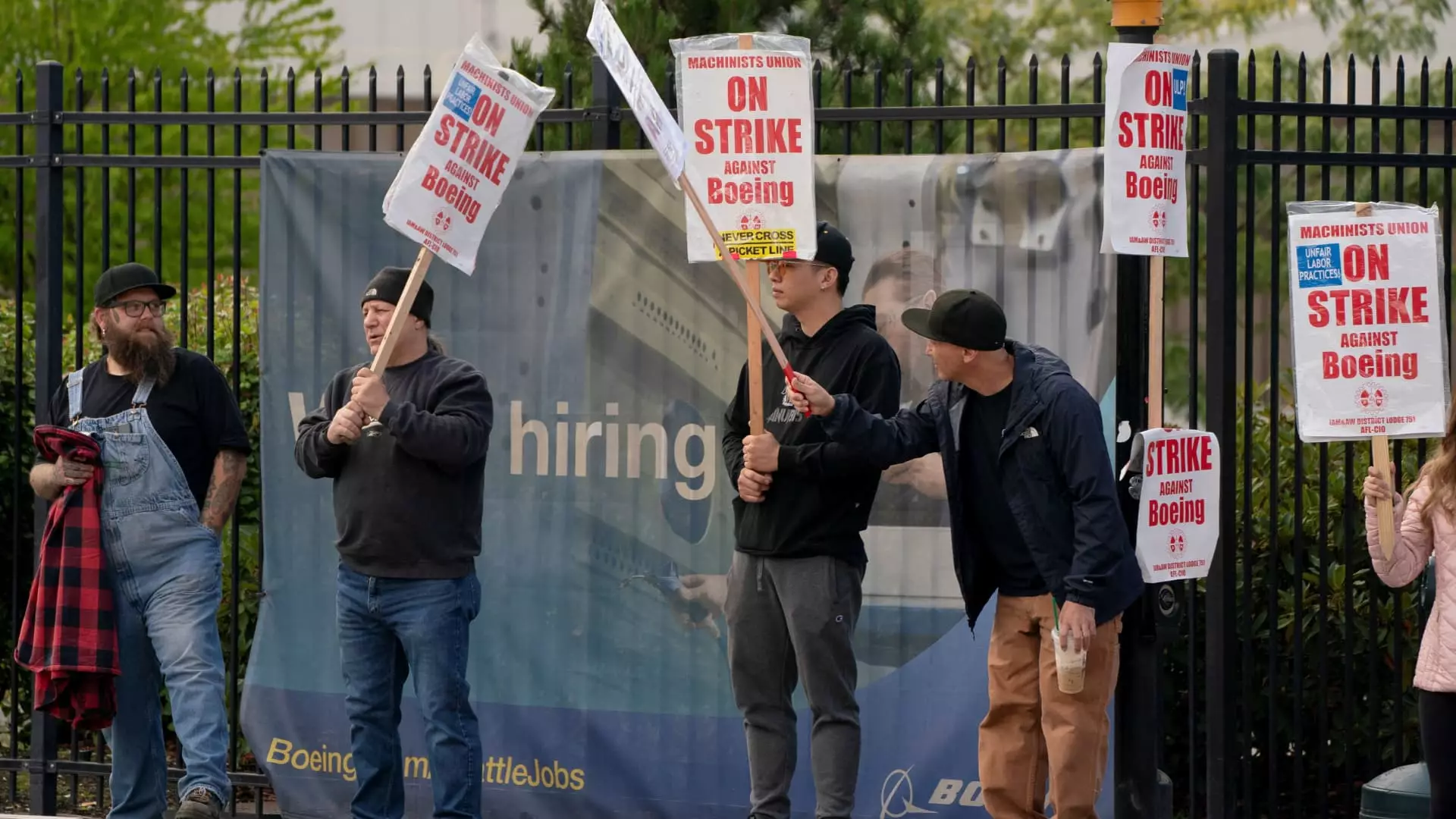Boeing’s recent announcement regarding significant cost-cutting measures reflects a turbulent period marked by labor unrest. With over 30,000 factory workers engaging in a strike following the rejection of a tentative labor agreement, Boeing faced immediate operational disruptions that compromised its production capabilities. The strike predominantly affected workers in the Seattle region, a critical hub for Boeing’s manufacturing processes. This situation not only threatens the company’s immediate output but also reverberates through its extensive network of suppliers, emphasizing the interdependence that characterizes the aerospace industry.
Cost-Cutting Strategies
In response to the ongoing industrial action, Boeing implemented a series of austerity measures aimed at preserving cash flow and stabilizing operations. Chief Financial Officer Brian West’s communication illuminated the depth of these measures, which include a hiring freeze, restrictions on nonessential travel, and substantial reductions in supplier spending. The decision to pause purchase orders for major aircraft models like the 737 Max and 777 indicates an urgent need to recalibrate priorities amidst an uncertain operational landscape. These strategies highlight a pragmatic, albeit reactive, approach to an unforeseen labor crisis.
The Human Element
While the corporate response emphasizes financial and operational metrics, the human element must not be overlooked. West’s acknowledgment of the need to bargain in good faith underscores a willingness to negotiate and address worker grievances. However, the mention of potential temporary furloughs paints a stark picture of the company’s financial straits. This duality—recognizing employees’ value while simultaneously considering layoffs—poses ethical and morale-related challenges that could linger long after the labor dispute is resolved. The workforce’s perception of being valued versus being expendable can significantly influence employee engagement and retention in the future.
Boeing’s current predicament serves as a cautionary tale, underscoring the fragility of supply chains and corporate health in times of labor disputes. The financial analysts at Moody’s and Fitch Ratings have signaled their apprehensions regarding Boeing’s creditworthiness, indicating that prolonged strikes could destabilize an already burdened financial structure. With substantial debt and previous losses amounting to $8 billion in the first half of the year, the stakes are considerably high for the company. The potential for a credit downgrade exacerbates the urgency of resolving the strike swiftly and effectively.
Boeing’s strategic response to the strike reveals a complex interplay of financial pragmatism and operational necessity, compounded by the human dimensions of labor relations. The path forward will require not only stringent cost management but also genuine dialogue with employees to foster a collaborative atmosphere. The company’s ability to navigate this crisis may redefine its corporate culture and operational strategies in the long run. If approached thoughtfully, this situation could set the stage for a stronger, more resilient Boeing, capable of sustaining industry challenges and fostering employee loyalty in a dynamically evolving aerospace sector.

